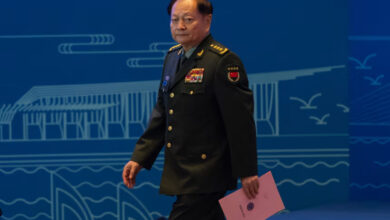By definition, those who participated in the revolution rejected the Mubarak regime. The reasons for the revulsion varied however, and the associated conceptual gaps were often deep and wide. Take for example the issue of the transfer of power. There were those whose opposition to hereditary inheritance stemmed solely from political principles; they had no elemental quarrel with the person of Gamal Mubarak, with his worldview or with his lifestyle. Then there were those who resented the heir and his entourage principally because they perceived them as alienated, not only economically but also culturally. A huge conceptual and political chasm separates these two positions.
Members of the first group opposed the regime because it did not take its ostensibly modernizing schemes to their logical conclusion. The regime that had taken to linking the country to the world economy, all the while wiring it with one of the most effective Internet services in the developing world, seemed quite recalcitrant when it came to the political sphere. Here, it adopted a stunningly anachronistic approach, complete with spectacularly fraudulent elections, partly overseen by pro-government thugs enforcing a primitive power structure largely built on ties of blood.
However, while some opposed the regime from a liberal modernizing stance, the rejection of the opposing camp embodied a culturally conservative reaction, born of the perception that the heir apparent and his entourage did not fit the image of proper full-blooded Egyptians. This camp did not only reject the regime's relations with the West, but also the sort of people it associated most with these relations. It resented in particular the clique of technocratic experts and businessmen that surrounded the young Mubarak, a group whose jet setting members seemed so at ease in a globalized world, effortlessly mingling with its elites while maintaining a condescending attitude towards other Egyptians, their values and their traditions.
Contradictory economic needs and demands accompanied these conflicting worldviews. Some revolutionaries resented the economic status quo because it put a ceiling on the ambitions of those finding themselves outside the inner circle of patronage, while a second group complained of the absence of social safety nets. While members of the first group generally support a free market system operating within the norms of liberal democracy, many belonging to the second group are weary of free enterprise, are deeply suspicious of an entrepreneurial class they see as incorrigibly corrupt and exploitative, and consider social justice to be at least as important as political liberty. Secular leftists and Islamist factions were amongst the components contributing to this trend.
However, Islamists also resented the regime's refusal to follow literal readings of Islamic tradition and impose conventional religious jurisdiction in its entirety. Agreement on economic issues did not necessarily translate into the cultural domain. Among the Tahrir demonstrators there were many leftist writers and artists who resented the controls that the former regime imposed on creative activities, including the banning of books and artworks on religious grounds. While this group decried the regime's populist appeals to religion, an opposing traditionalist camp considered the regime far too liberal in its tolerance towards secular values, discourse and dissent.
At the epicentre of these crosscurrents stands a mass of “middle Egyptians”, people who despised the decades of humiliating dictatorship but are now weary of the prospects of economic collapse and societal chaos. Given the fundamental fault-lines just described, and in the absence of a consensus concerning the future nature of the state, any attempt by a particular group at imposing its will is likely to ensure that these fears would be borne out, and that aspirations to liberty and dignity will be deferred. For, given the scale of the expected opposition, any such group will likely be unable to maintain stability or economic growth. It will eventually have to resort to violence to maintain order, and we know from the experience of the past six decades that process of humiliation, subjugation and betrayal starts with the persecution of the active opposition.
The prospect of the current transition period ending with such a scenario will probably be perceived in retrospect as a catastrophic failure of historic proportions. Perhaps it is for this reason that the military council responsible for the transition keeps on declaring its neutrality, repeatedly reiterating that it is not facilitating the eventual domination of any particular agenda or trend. The greatest challenge now facing it pertains to the faithful application of this principle.
Translated from the Arabic Edition.




